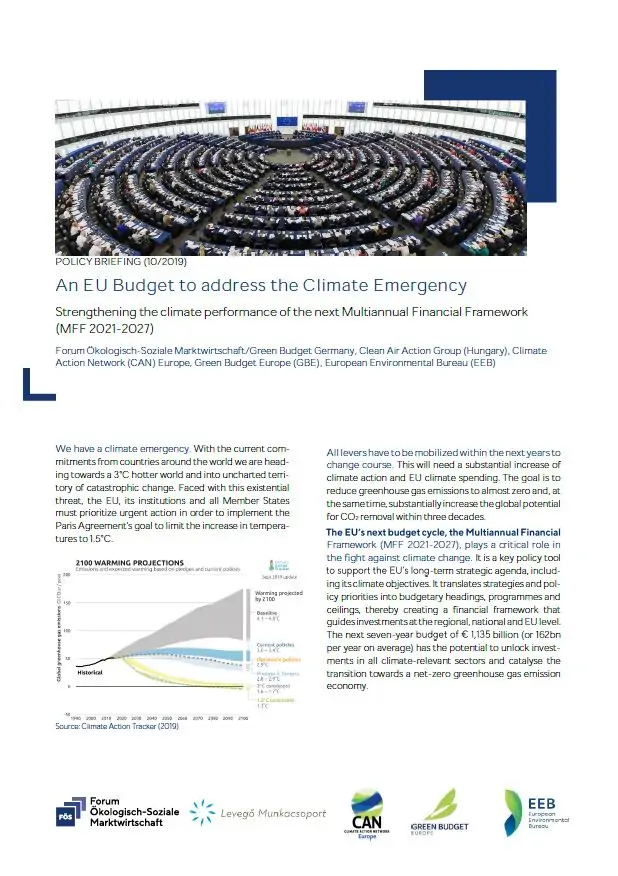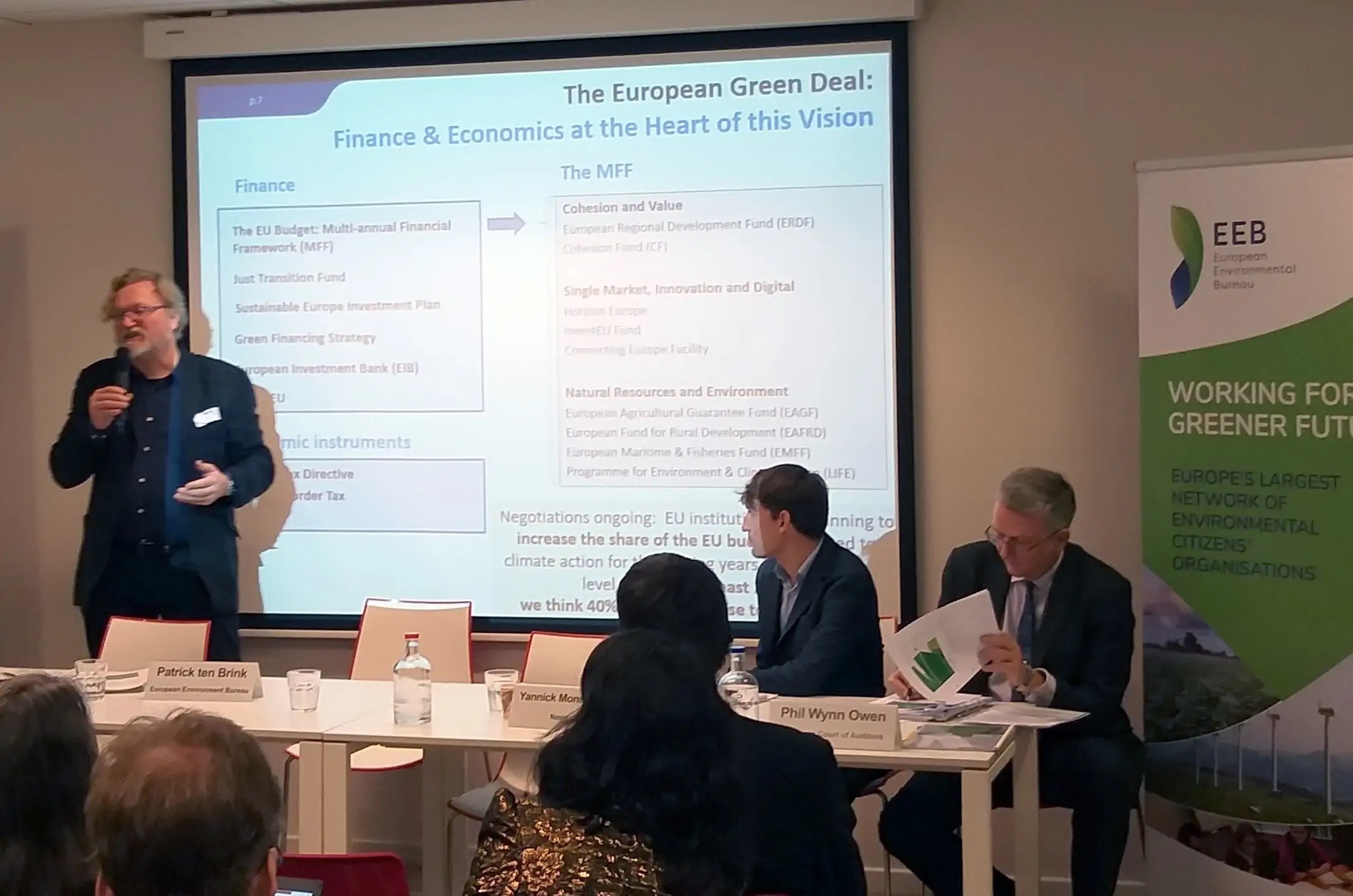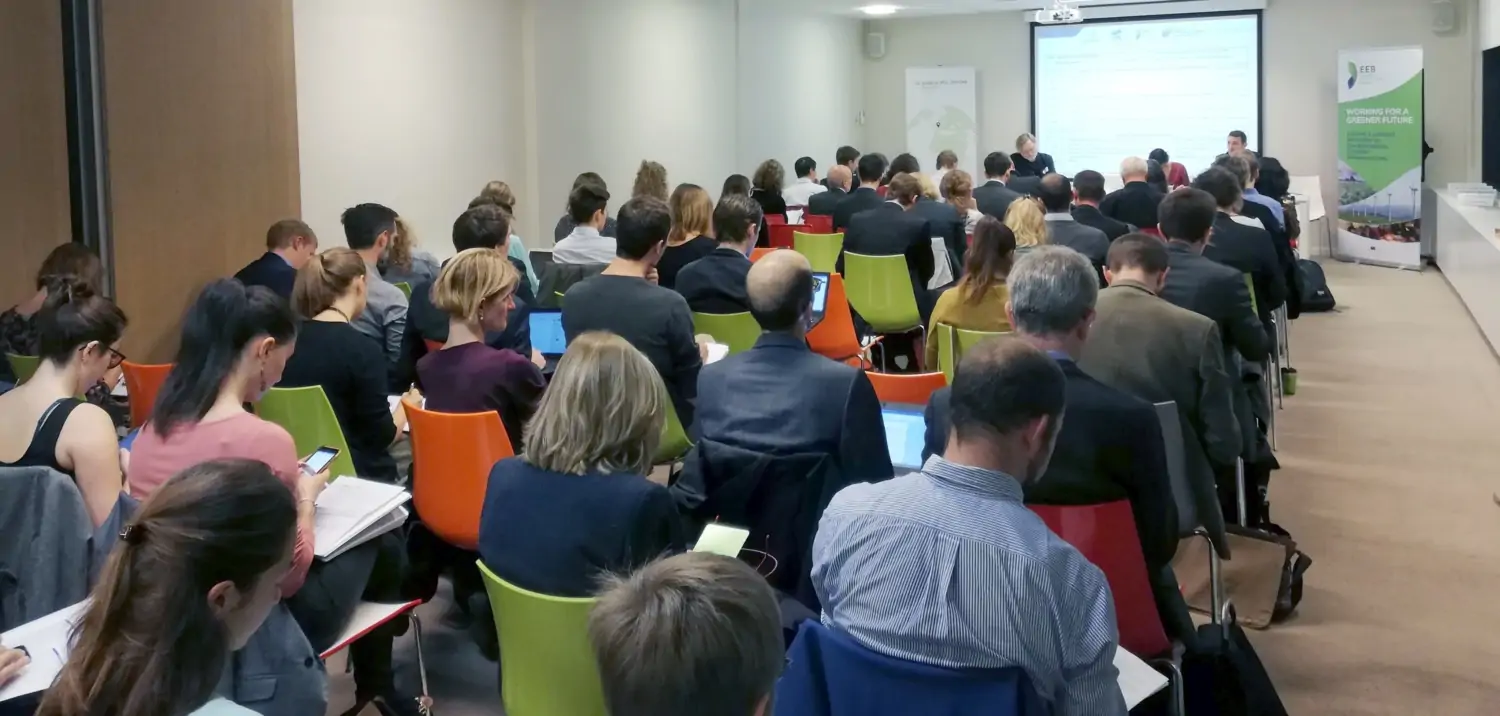For a Green EU Budget
The fight against climate change can only be successful if sufficient funding is available. The budget provided by the European Union (EU) plays a decisive role here. A conference in Brussels, organised by a project of the European Climate Initiative (EUKI), brought together stakeholders from politics and civil society for a discussion on a “Multiannual Financial Framework (MFF) for the Climate”.

The event was attended by representatives of civil society organisations (CSOs), including the project partners, European Environmental Bureau (EEB), Climate Action Network Europe (CAN), Green Budget Germany (FÖS) and the Clean Air Action Group (Levegő Munkacsoport). Political representatives such as Thomas Pickartz, the German representative to the European Council, Phil Wynn Owen from the European Court of Auditors and Tinne Van der Straeten, Member of the Belgian Parliament were among the speakers and also participated in the discussions. The EUKI project thus brought civil society stakeholders together with European and national policymakers. The purpose of the exchange is to ensure the meaningful and efficient use of future funds in the EU budget from 2021 to 2027.
Further information
Conference page (incl. presentations)
Policy briefing

Efficient and Targeted Use of Existing Funds
“We won’t solve the climate crisis if we don’t succeed in improving the structure of the EU budget “, said Patrick ten Brink of the EEB in his speech emphasising that the EU spending targets and strategies had to be improved in order to contribute to the achievement of climate action objectives. The conference particularly highlighted the need for a more efficient and targeted use of existing funds. Much of the budget would be lost through corruption and wastefulness.

At the same time, it is not enough to increase EU climate spending to 25% of the budget. “We have to look at the whole budget and the other 75%”, explained Yannick Monschauer of the Navigant consulting company. He pointed to the fact that the climate-friendly expenditures would be offset by various climate-damaging subsidies, a point which other speakers also elucidated. Much remains to be done in agriculture and the transport sector, for example. A lively discussion was held on how the replacement of coal with gas could be financed. Positive aspects such as air pollution control were mentioned while several participants warned against lock-in effects.
Capacity Building for CSOs
Capacity-building measures for civil society organisations (CSOs) were on the agenda for the second part of the conference. The measures suggested included the design of the next EU MFF and how CSOs could influence it. For example, they could send proposals for funding specific areas to national governments or the DG REGIO.

The project, “A multiannual financial framework for the climate“ set itself the goal of making the next MFF more climate-friendly. A detailed study and an explanatory video were produced, in addition to conferences held in Brussels, Warsaw and Berlin. Financed within the framework of the European Climate Initiative of the Federal Ministry for Economic Affairs and Climate Action (BMWK), the project will run until August 2020.
